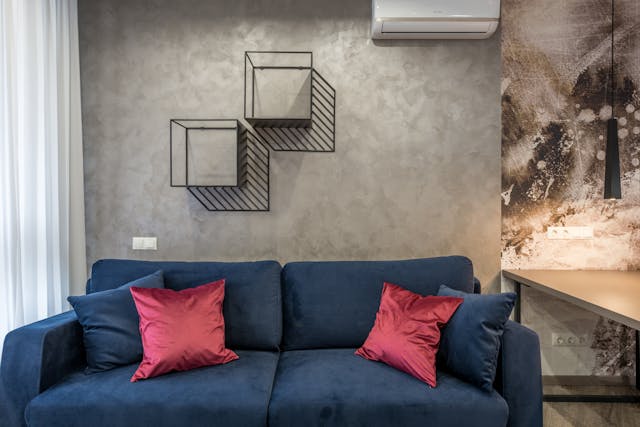Air conditioning has become an essential part of our lives, especially during the sweltering heat of summer. But with its widespread use comes a flurry of myths and misconceptions about how AC systems work and the best practices for their use and maintenance.  It’s time to turn down the thermostat on these myths and shed light on the facts, ensuring you get the most out of your air conditioning without falling prey to common fallacies.
It’s time to turn down the thermostat on these myths and shed light on the facts, ensuring you get the most out of your air conditioning without falling prey to common fallacies.
Myth 1: Lowering the Thermostat Cools Your Property Quicker
The Fiction
A lot of people think that setting the thermostat to a much lower temperature will cool their home more quickly.
The Fact
Air conditioners cool at the same rate, regardless of the temperature setting. Setting your thermostat extremely low will only result in excessive cooling and higher energy bills.
Myth 2: Air Conditioners Only Cool the Air
The Fiction
A common misconception is that air conditioners are solely responsible for lowering the air temperature.
The Fact
AC units do more than just cool; they also reduce humidity, which is a significant factor in how we perceive temperature. By removing moisture from the air, air conditioners make the environment more comfortable.
Myth 3: You Don’t Need to Service Your AC if It’s Running Fine
The Fiction
If the AC appears to be working without any issues, there’s no need for maintenance or servicing.
The Fact
Regular maintenance from an air conditioning company Sarasota is crucial for optimal performance. An AC unit might be running, but without annual check-ups, it could be losing efficiency, leading to higher energy costs and potential future breakdowns.
Myth 4: The Bigger the AC, the Better
The Fiction
A larger air conditioner will cool your home more effectively.
The Fact
An oversized AC can lead to short cycling, where the unit turns on and off frequently, reducing efficiency and the ability to dehumidify the air effectively. Proper sizing is key to efficient performance.
Myth 5: Ceiling Fans Lower Room Temperatures
The Fiction
Running a ceiling fan in a room will reduce the temperature.
The Fact
Ceiling fans don’t lower temperatures; they circulate air, which helps evaporate sweat and makes the room feel cooler to occupants. Remember to turn off fans in unoccupied rooms to save energy.
Myth 6: Leaving the AC on All Day Saves More Energy Than Turning It Off
The Fiction
It’s more energy-efficient to leave your AC on at a constant temperature all day, even when you’re not home.
The Fact
Turning off your AC when you’re away for extended periods can save energy. Using programmable thermostats or smart AC systems can help regulate temperature efficiently, ensuring you return to a cool home.
Myth 7: AC Units Only Affect Indoor Air Quality
The Fiction
Air conditioners have no impact on outdoor air quality.
The Fact
AC units release heat and sometimes refrigerants that can affect outdoor air quality and contribute to urban heat islands. Choosing energy-efficient and properly maintained AC systems can mitigate these effects.
Final Words
Understanding the truths behind common air conditioning myths can lead to more efficient use, longer lifespan for your AC unit, and even cost savings. Regular maintenance, proper usage, and debunking these myths ensure that your air conditioning system remains a reliable ally against the heat. So next time you hear a common AC myth, you’ll have the knowledge to turn up the dial on truth and keep the facts cool and clear.
Frequently Asked Questions
Should I close vents in unused rooms to save energy?
Closing vents can cause pressure imbalances and make your AC work harder, potentially reducing its efficiency and lifespan.
Can air conditioning cause colds?
The cold itself isn’t caused by air conditioning. However, AC can circulate dust and other allergens, and drastic temperature differences can stress the body, possibly making some individuals more susceptible to illness.
Is it more cost-effective to use window units than central air?
This depends on the size of the space you’re cooling and how you use it. Window units can be more efficient for cooling a single room, but central air is typically more effective for larger spaces or multiple rooms.
Related Posts: